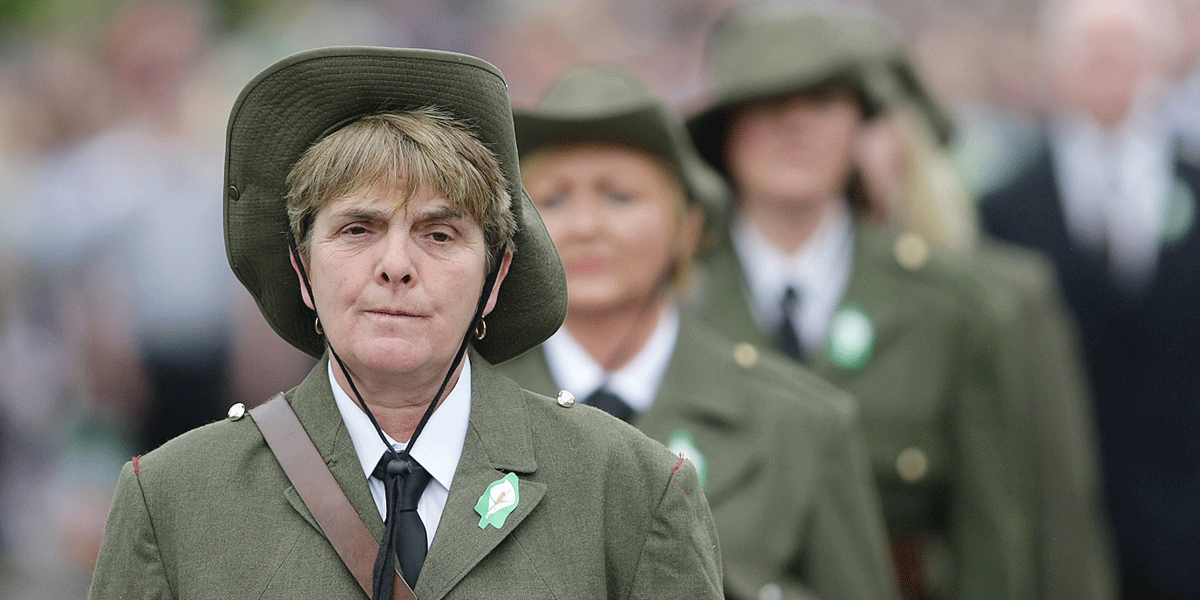It’s started. And you’ll hear lots more of it over the coming years. DUP Minister for Social Development Nelson McCausland said this week he’s prepared to consider participating in activities relating to the commemoration of the Easter Rising. No, Virginia, he did not say he would wear a beret and snap a salute outside the GPO. But he did say he’d be prepared to go on a panel or engage in a discussion about Easter 1916, as part of the centenary activities marking that event.
At this point I should confess a personal interest. I’m working on a book of interviews relating to three of the big centenaries – the signing of the Ulster Covenant, Easter 1916 and the Battle of the Somme. So I’m particularly alert when someone pipes up on the subject. Another example: last Saturday morning in Belfast Central Library I ran into Sinn Féin’s Tom Hartley. He tells me he’s taking part in a panel discussion next month on the signing of the Covenant. And I gather they had a thing about centenaries in Belfast City Hall recently. So there does seem to be a willingness on all sides to at least acknowledge that these big events occurred.
That’s good. Because such landmarks carry a lot of emotional cargo that prompts all sorts of questions. I’m old enough to remember the 50th anniversary of the Easter Rising (dear God – did I really say that?). Telefis éireann, as it was then, had a range of programmes about the leaders of the Rising and what happened during those fateful days, and the viewing figures were massive. In fact, you’ll get those who claim that the marking the 50th anniversary of the Rising reawakened a dormant nationalism in the Irish people, and that the events from 1968 on can be laid at the anniversary’s door.
Whether that’s truth or rubbish, or something in between, you can be sure that the commemoration of the signing of the Ulster Covenant later this year will aim to deepen a sense of unionism among the unionist people. Likewise, the Easter 1916 commemorations four years down the road will aim to… I was going to say “deepen a sense of nationalism among the nationalist/republican people” but it’s actually more complicated than that.
Talking to unionists, I find the tendency is towards celebration of the signing of the Covenant. They may not use that word, but that’s the thrust of it, and you’re usually reminded that some of those signing it used not ink but their own blood. (Note to self: check accuracy and frequency of said blood-signing.) In contrast, among people who could be loosely described as nationalist, there’s a tendency to push away suggestions of celebration and a willingness to analyse and consider the centenaries and their meaning for today.
This more open attitude strikes me as commendable, even if it brings its own dangers. Remembering major events will be more productive if we postpone having a warm emotional bath in them and opt instead to scrutinise and maybe learn. For example, is there such a thing as a “betrayal of the past”? Do the things that were said and written and done a hundred years ago have the same meaning now? Take the signing of the Ulster Covenant, which expressed a unionist determination to keep at least part of Ireland in the United Kingdom. Does it have a different meaning now that Alex Salmond and a lot of other Scottish people are doing their damnedest to elbow their way out of that same Union? Or the Easter Rising. Do the words of the Proclamation have a different meaning now that the South has handed over what limited sovereignty it had to the EU/IMF? And in the North – where do the Good Friday Agreement and power-sharing fit into the notion of Ireland “striking for her freedom”? Do Carson’s words make sense now? Do Pearse’s? Or is even asking the questions Alliance Party talk? Answers on a postcard, please.
Blog: judecollins.com
Website: judecollins.net



